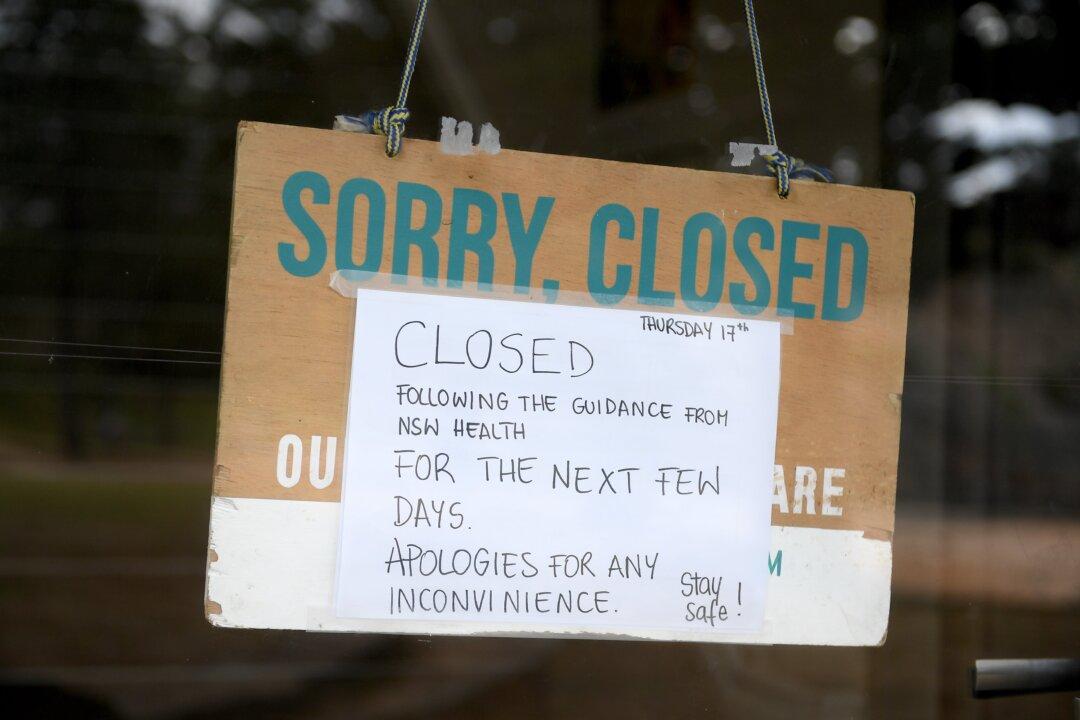Consumer confidence experienced its sharpest weekly drop since the start of the CCP virus pandemic as states announce lockdowns one after another to contain the Delta variant of the coronavirus.
Currently, over half of all Australians are now in lockdown after South Australia announced restrictions were coming into force from 6 p.m. Tuesday, after five cases were detected in the state, joining the New South Wales and Victoria.





